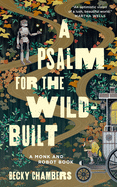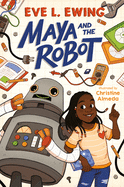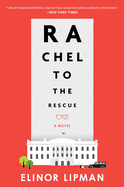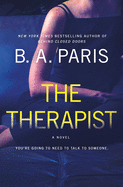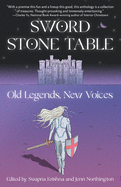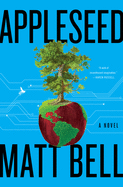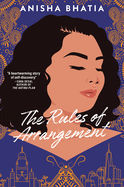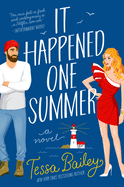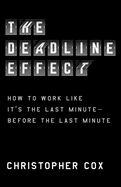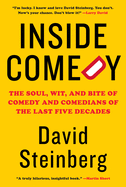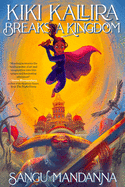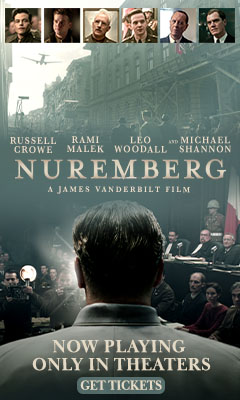Friday, July 16, 2021
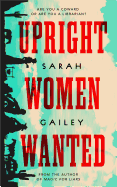 I first came to Sarah Gailey's work when I read their debut novel, River of Teeth (St. Martin's, $15.99). The premise seems far-fetched at first: the story is set during an alternate American Civil War; the government bred hippos in the marshlands of Louisiana, failing to account for their brutality and resulting in bayous overrun with feral hippos by the late 19th century. (This was an actual plan presented to Congress as a possible solution to food shortages during the Civil War, though it was never implemented.) The novella reads something like an old western, with Winslow Houndstooth and a ragtag crew of assistants contracted to take back the hippo-run bayou. In Upright Women Wanted (Tordotcom, $20.99), Gailey once again proves an ability to pack a slim tale with outsized action and adventure, this time in an imagined future America in which Librarians run state-sanctioned materials between territories--and smuggle a few contraband items along the way.
I first came to Sarah Gailey's work when I read their debut novel, River of Teeth (St. Martin's, $15.99). The premise seems far-fetched at first: the story is set during an alternate American Civil War; the government bred hippos in the marshlands of Louisiana, failing to account for their brutality and resulting in bayous overrun with feral hippos by the late 19th century. (This was an actual plan presented to Congress as a possible solution to food shortages during the Civil War, though it was never implemented.) The novella reads something like an old western, with Winslow Houndstooth and a ragtag crew of assistants contracted to take back the hippo-run bayou. In Upright Women Wanted (Tordotcom, $20.99), Gailey once again proves an ability to pack a slim tale with outsized action and adventure, this time in an imagined future America in which Librarians run state-sanctioned materials between territories--and smuggle a few contraband items along the way.
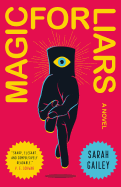 Gailey's genre-defying imagination once again shines in Magic for Liars (Tor, $17.99). It reads like a fast-paced whodunit combined with all-too-familiar high school drama. Except this high school is for magical teenagers, and the down-on-her-luck private investigator sent to look into a murder on campus is decidedly not magic. In their latest novel, The Echo Wife (Tor, $24.99), Gailey once again straddles genres in a story of a woman who discovers her husband has been having an affair--with her clone. A little bit sci-fi, a little bit domestic thriller, the novel poses questions about responsibility and creation: not only when cloning but also when crafting a life, for ourselves and for others. Shelf Awareness's reviewer called it "unsettling"--a quality that could be applied to any of Gailey's imaginative works of fiction, and not a bad thing in the least. --Kerry McHugh, blogger at Entomology of a Bookworm
Gailey's genre-defying imagination once again shines in Magic for Liars (Tor, $17.99). It reads like a fast-paced whodunit combined with all-too-familiar high school drama. Except this high school is for magical teenagers, and the down-on-her-luck private investigator sent to look into a murder on campus is decidedly not magic. In their latest novel, The Echo Wife (Tor, $24.99), Gailey once again straddles genres in a story of a woman who discovers her husband has been having an affair--with her clone. A little bit sci-fi, a little bit domestic thriller, the novel poses questions about responsibility and creation: not only when cloning but also when crafting a life, for ourselves and for others. Shelf Awareness's reviewer called it "unsettling"--a quality that could be applied to any of Gailey's imaginative works of fiction, and not a bad thing in the least. --Kerry McHugh, blogger at Entomology of a Bookworm
Rachel to the Rescue
by Elinor Lipman
If laughter is the best medicine, Elinor Lipman's 13th novel, Rachel to the Rescue, is a healing prescription following four years of the Trump presidency.
With her typical rapier wit and affection for her characters, Lipman's romantic comedy starts by noting the Trump White House did have staffers to reconstruct documents--legally required to be preserved--that the president regularly tore up. A member of "Team Scotch Tape," Rachel Klein inadvertently ended her White House Office of Records Management (WHORM) career with a late-night "reply-all drunken email." Her tie to the administration is extended, however, when after being dismissed from her office she's hit by a car driven by "what the newspapers would one day diplomatically refer to as 'a personal friend of the president's.' " Rachel's first-person narration ratchets up the humor of the suspected hanky-panky, the not-so-subtle attempts to silence her about the accident and her stereotypically over-attentive Jewish parents.
Lipman (Good Riddance; On Turpentine Lane) is a master of madcap twists and quirky characters, and she balances this political satire of a still-raw chapter in history with hilarious sub-plots. The supporting cast includes Rachel's likable new employer, the book-a-year muckraking author Kirby Champion; roommates committed to nurturing her romance with a dashing wine store clerk ("How did I end up living in Yentaville?" Rachel asks); and Alex, of Varsity Wine. A fast-paced, dialogue-rich denouement resolves the White House shenanigans storyline, leading to an ending that Lipman characters reach so adeptly: happiness ever after. --Cheryl McKeon, Book House of Stuyvesant Plaza, Albany, N.Y.
Discover: A timely political spoof from a seasoned author of romantic comedies lends a humorous perspective to the four years of the 45th presidency.
Mystery & Thriller
The Final Girl Support Group
by Grady Hendrix
Grady Hendrix follows up his hip and feminist vampire hit The Southern Book Club's Guide to Slaying Vampires with an equally audacious and entertaining meta salute to slasher films and the women who survived them, The Final Girl Support Group. The "Final Girl" in horror culture is the last woman standing after all her friends have been slaughtered; she's the one who outsmarts (and often kills) the killer... until the sequel.
The members of this support group (led by Dr. Carol Elliot) consists of six middle-aged women who survived serial killers and had their tales turned into movie franchises. There were seven, but Chrissy ("she's a traitor") began to idolize their tormentors and left the group. Now, someone has hacked into narrator and final girl member Lynnette Tarkington's computer, learned their secrets and is beginning to kill the group's members. These women now have to reignite the same cunning and shrewd inventiveness that helped them survive decades ago. Attentive fans of Halloween, Scream, A Nightmare on Elm Street, The Texas Chainsaw Massacre, Friday the 13th, Hellraiser and a few other horror franchises might have a slight edge on each woman's background and psyche. But even horror movie novices will enjoy the adrenaline-pumping cat-and-mouse chases and marvel at the ingenuity of evading an all-knowing, unstoppable killing menace.
Hendrix adeptly creates multi-dimensional characters and delves into their hyper-vigilant mindset. Lynnette is particularly fascinating as she is pushed from her near-agoraphobic state to someone who has to learn to trust to survive. This is a fast-paced, twisty and thoughtful roller-coaster ride. --Kevin Howell, independent reviewer and marketing consultant
Discover: This fast-paced thriller about a support group of serial killer survivors being stalked by an unknown killer offers both meta cleverness and heart-pounding excitement.
The Therapist
by B.A. Paris
Most homes have had previous residents, although new occupants put their own touches on each room. It's those past tenants--and what happened to them--that worry Alice Dawson, who's bought a beautiful house with her boyfriend, Leo Curtis, in The Circle, a London gated community of 12 homes that B.A. Paris (Behind Closed Doors) explores in The Therapist, her fifth engrossing psychological thriller.
After a few nights, Alice starts to hate the house and discovers the neighbors are standoffish, and a few times Leo believes someone else is in their home. Then, Alice learns that therapist Nina Maxwell was murdered upstairs the year before; her husband, Oliver, committed suicide after being accused of the crime. Alice is furious that Leo didn't mention the murder, and her reactions intensify because she feels connected with women named Nina: her sister, Nina, was killed in a car accident along with their parents. She agrees to help investigator Thomas Grainger, hired by Oliver's sister, find the killer.
Paris creates vivid character studies for each resident of The Circle, including the murdered Nina. Alice could use a therapist herself as her anxiety and obsession are out of control, yet she still engenders sympathy. Alice desperately wants love and friendship, and to be accepted by her neighbors--though she suspects one of them is Nina's murderer. The Circle's secluded location isn't exactly a Peyton Place, but each resident has secrets, including Leo.
The Therapist skillfully melds a twisty, psychological thriller with a contemporary approach to the locked-room mystery. --Oline H. Cogdill, freelance reviewer
Discover: In this engrossing psychological thriller, an anxiety-ridden woman tries to find out what happened to the woman murdered in the home she and her boyfriend bought.
Science Fiction & Fantasy
A Psalm for the Wild-Built
by Becky Chambers
Hugo Award-winner Becky Chambers (The Galaxy, and the Ground Within) delivers a meditative glimpse of a hopeful future with A Psalm for the Wild-Built, the first volume in her Monk & Robot series.
Centuries after the Awakening--when the robots of Panga suddenly became sentient and disappeared into the wilderness, apparently for good--humankind has achieved a comfortable sustainability, and life in Panga's only city is utopic. Despite this, Sibling Dex is unsatisfied; they long "to inhabit a place that spread not up but out." They trade their urban vocation for that of a tea monk, traveling the countryside and offering patrons comfort in the form of a warm cup and a sympathetic ear. Driven by a lingering sense of lack, Dex ventures deeper into the wilderness long untouched by humans and encounters Mosscap, a robot--the first to make contact since the Awakening. Mosscap, like Dex, seeks something elusive. Charged by its fellow robots with checking in on humanity after their long separation, Mosscap puts to Dex a profound question: "What do humans need?"
Droll Dex and wide-eyed Mosscap make for an irresistible pair, their diverging outlooks giving Chambers ample opportunity to exercise her gift for introspection. As the monk and robot's exchanges open into a wider meditation on consciousness and impermanence, the gentle touch with which Chambers handles her material makes the book's loftiest philosophical aims feel grounded. With a pervading sense of optimism and warmth, A Psalm for the Wild-Built inaugurates an exciting series from one of science fiction's brightest stars. --Theo Henderson, Ravenna Third Place Books in Seattle, Wash.
Discover: The first in Becky Chambers's Monk & Robot series offers a quietly profound meditation on consciousness and a hopeful vision for humankind's relationship to nature.
Sword Stone Table: Old Legends, New Voices
by Swapna Krishna and Jenn Northington, editors
Why does the legend of King Arthur continue to captivate people after so many centuries? The authors featured in Sword Stone Table: Old Legends, New Voices offer 16 compelling reasons. The collection takes readers across time and cultures, breathing new life into one of the oldest Western myths. The stories, edited by Swapna Krishna and Jenn Northington, feature queer characters, BIPOC protagonists, fresh perspectives on characters that readers will recognize, as well as several who are usually at the margins or barely mentioned.
The anthology is organized by time period in three groups--past, present and future--but even in the same era, they vary widely. Maria Dahvana Headley's "Mayday" is a satisfying, intriguing mystery told via a collection of items and documents found in an abandoned lighthouse--by the FBI. Sive Doyle's "Do, by All Due Means" is a sapphic adventure, funny in a way reminiscent of Monty Python and the Holy Grail.
Arthur in these stories is Art, Arjun, Arturo and more. In "Little Green Men," Alexander Chee closes the anthology with a rather sweet take on Arthur and Gawain set in a space-age future. With nods to the original, Chee's story epitomizes the breadth and universality of Arthurian themes as showcased in these stories. The futuristic setting feels as natural as those in the past and present, with characters both true to the source material and entirely new.
Fans of Arthurian legends are certain to find a few stories to love in Sword Stone Table--and they just might see themselves in the pages, too. --Suzanne Krohn, editor, Love in Panels
Discover: Sword Stone Table: Old Legends, New Voices collects 16 compelling short stories across time, culture and genre in an anthology sure to please fans of Arthurian legend.
Appleseed
by Matt Bell
In three connected stories set across time, this daringly imaginative cli-fi (climate-fiction) epic from Matt Bell (In the House Upon the Dirt Between the Lake and the Woods) delves into the bonds between story and identity, the past and present, and humanity and nature.
A human named Nathaniel and his younger brother, a faun called Chapman, clear forested land and cultivate apple orchards for settlers in the 18th-century Ohio Territory, "an earth giving up its treasure for the good of mankind." Nathaniel hopes the work will make their fortunes, but Chapman only wants to grow a "Tree of Forgetting" that will turn him human.
In a not-too-distant future, a climate apocalypse ravages the remains of civilizations, and inventor-turned-scavenger John is recruited to stop a catastrophic terraforming initiative led by his former lover, CEO of a company they founded together.
In the far future, a 3D-printed faun named C, currently in his 432nd body, travels a land remade by a new ice age, looking for biomass. When he finds new life against all odds, he sets out for humanity's last refuge but will face an impossible choice.
The three narratives form concentric rings around the Greek myth of Orpheus and Eurydice and the American tall tale of Johnny Appleseed. Each timeline raises challenging questions about interconnection, complicity and ecological stewardship. Appleseed's mix of hard sci-fi, folkloric elements and ethical issues make it appealing for Neal Stephenson fans and readers who long to safeguard the wild. --Jaclyn Fulwood, blogger at Infinite Reads
Discover: Matt Bell turns to Greek myth, American folklore and science fiction for inspiration in this daringly imaginative cli-fi epic.
Romance
The Rules of Arrangement
by Anisha Bhatia
A boisterous family drama set in Mumbai, India, The Rules of Arrangement by Anisha Bhatia takes satirical aim at marriage-obsessed cultural norms in well-to-do communities that emphasize a woman's looks and fashion sense over her education and intelligence. It is the story of witty and ambitious Zoya, a 26-year-old advertising associate at a multinational company with a promising career and a family eager to find her a husband. Leading the charge is the formidable and well-coiffed Sheila Bua, a lovingly rendered version of the stereotypical matchmaking aunty.
Bhatia's colorful debut follows its heroine as she is introduced to prospective grooms, all the while distracted with a project at work she hopes will land her a transfer to the New York office. "The trick with our traditions is to not argue," she explains, going along with her family but with no intention of letting marriage sideline her dreams. While Zoya's enigmatic male boss comes into clearer, rosier focus and her aunt's hard work finally yields a suitable marriage candidate, Zoya begins noticing cracks in Sheila Bua's merry façade and odd, secretive behavior that prompt further investigation. What Zoya discovers as she digs deeper into Sheila Bua's past, and the implications it has for her own future, will shake the foundations of her world.
Energetically narrated by Zoya, The Rules of Arrangement features memorable scenes from a wedding, where aunties jostle for space on the dance floor; awkward but hilarious meetings between Zoya and potential husbands; and workplace drama documenting the journey of a talented young woman making her way in the world--rewriting the rules along the way. --Shahina Piyarali, reviewer
Discover: An action-packed comedy drama about love, family and ambition in which a modern Indian woman in her 20s and her old-fashioned matchmaking aunt realize they share similar dreams.
It Happened One Summer
by Tessa Bailey
Following her Hot and Hammered trilogy, Tessa Bailey reels in readers with It Happened One Summer, a romantic comedy about a Los Angeles socialite sent to live in a remote fishing town after a very public arrest and the grumpy fisherman who doesn't want to fall for her.
Much like the family in Schitt's Creek, Piper and her more down-to-earth sister, Hannah, get off to a rough start to small-town life--how do you make spaghetti? Hilarity ensues.
It's not all jokes, though. Laugh-out-loud scenes, as when Piper runs into the street with a flaming frying pan, flow easily into somber moments, in which Piper reflects on the loss of a father she never knew, and Brendan contemplates moving on six years after the death of his wife. Bailey has a knack for combining the two, as when Piper accidentally barges into a memorial for said wife with a tray of shots.
Moments of connection after the cringe take the humor from laughing at Piper to laughing with her. Sure, she's a mess, but she knows it, and is working hard regardless. It's not that Brendan sweeps in and fixes her life, it's more that he, Hannah and some time away from her chaotic social life teach Piper that she's capable of more than anyone thinks.
The chemistry between Brendan and Piper sizzles, and while Piper's hijinks sometimes steal the show, the romance here is the real star. Hot and surprisingly sweet, It Happened One Summer is a catch. --Suzanne Krohn, editor, Love in Panels
Discover: Filled with laughs and memorable characters, It Happened One Summer is the perfect summer romantic comedy for fans of Schitt's Creek, salty fishermen or fish-out-of-water stories.
Business & Economics
The Deadline Effect: How to Work Like It's the Last Minute--Before the Last Minute
by Christopher Cox
Productivity books are always popular, as The Power of Habit and Atomic Habits demonstrate. But The Deadline Effect: How to Work Like It's the Last Minute--Before the Last Minute is more than just a book about being more effective: it's a fascinating amalgamation of productivity tips and deep dives into the lives of people meeting extraordinary deadlines. From famous restaurateur Jean-Georges Vongerichten opening two restaurants on back-to-back days to a failed 2020 presidential campaign to a military unit braced to provide immediate relief after hurricanes, journalist Christopher Cox does an excellent job finding real-life examples of the importance of deadlines.
Fast-paced and informative, The Deadline Effect will teach readers how to use deadlines to their own advantage. As Cox points out, "In some sense, every time we face a deadline we are attempting to use urgency to spur action." If people can trick their brains into thinking things are more urgent than they are, they can increase their efficacy--whether that's by "planning right to left," like Easter lily growers in Northern California, who start with the date of Easter and count backwards, or being "mission-driven," like Best Buy employees in the lead-up to Black Friday.
Full of pointers on how to be more motivated and productive and written in an approachable, pithy way, The Deadline Effect is sure to fascinate readers. --Jessica Howard, bookseller at Bookmans, Flagstaff, Ariz.
Discover: Fascinating real-life examples of deadlines abound in this guide to being more efficient.
Humor
Inside Comedy: The Soul, Wit, and Bite of Comedy and Comedians of the Last Five Decades
by David Steinberg
Inside Comedy is unpolished, repetitive, digressive and occasionally braggadocious. This is arguably a felicitous approach to stand-up legend David Steinberg's splendid subject: the unpredictable, ego-driven, and literally and figuratively improvisational world of comedy in the latter half of the 20th century.
Steinberg (The Book of David), who grew up in Winnipeg in the 1940s, can offer valuable generational perspective on his chosen field: "I lived through a time when stand-up comedy was a poor relation to other forms of entertainment," he writes early on in Inside Comedy. "But I think I was one of a group of people--along with Steve Martin, Richard Pryor, George Carlin, and a few others--who pushed stand-up forward as an art form and made comedy an important part of the culture." Inside Comedy proceeds as a memoir/love letter/victory lap hybrid.
While attending the University of Chicago, Steinberg saw legendary comic Lenny Bruce perform, and it altered his destiny. Steinberg scrapped his plan to follow a religious path, although his yeshiva days would inform his comedy act. During his six years with the Chicago improv comedy group Second City, Steinberg became known for doing mock sermons that would make him a reliable comedy-club and TV fixture in the late 1960s.
Steinberg stayed the showbiz course, and the famous funny friends he racked up along the way, among them Julia Louis-Dreyfus, Martin Mull and Wanda Sykes, are spotlighted in the book's lengthy concluding chapter. But Inside Comedy's calling card is Steinberg's historically attuned firsthand accounts, as of the rise and fall of the Smothers Brothers and the marvel that was Johnny Carson's Tonight Show. --Nell Beram, author and freelance writer
Discover: In this engrossing look at comedy in the latter half of the 20th century, stand-up legend David Steinberg has much to say about his peers, their art and himself.
Children's & Young Adult
Maya and the Robot
by Eve L. Ewing, illus. by Christine Almeda
Sociologist and poet Eve L. Ewing's Maya and the Robot is an encouraging and poignant middle-grade debut that features a budding scientist and her homemade robot.
Patricia Maya Robinson is excited to start fifth grade at her Chicago elementary school. Now she can participate in the school science fair with the "certified, record-breaking greatest friends in the solar system," Jada and MJ. But, for the first time, the three Black friends aren't in the same classroom together. While her friends are with Ms. Montgomery, Maya is with Ms. Rodriguez, a dead ringer for Matilda's Miss Trunchbull. Maya, lonely and defeated, struggles to make new friends. One bright spot in Maya's week is the time she spends helping Mr. Mac at his "everything" convenience store. While cleaning out a storage closet, Maya finds a nonfunctioning robot named Ralph built by Mr. Mac's son, along with his notebook detailing the construction. Mr. Mac lets Maya take Ralph home and, with the notes, Maya is able to get Ralph up and running. Before she knows it, her problems don't seem as bad.
In this inspiring illustrated middle-grade novel, Ewing (1919; Electric Arches) highlights the importance of STEM and community while also touching on some of the more upsetting aspects of city life. Not only is this story about using one's curiosity and ingenuity to get through a tough time, it's also about the power of community. Ewing demonstrates how necessary friendship is for mental health, while also showing the effects an event like a shooting can have on a neighborhood. Ewing handles this delicate subject with aplomb and nuance. Christine Almeda's spot and full-page black-and-white illustrations are expressive and include depictions of Ewing's diverse cast of characters. Winning illustrations and relatable topics make Maya and the Robot significant and meaningful. --Lana Barnes, freelance reviewer and proofreader
Discover: In this heartening middle-grade novel, a young Black budding scientist finds a robot that helps her overcome anxiety brought on by change.
Kiki Kallira Breaks a Kingdom
by Sangu Mandanna
This debut middle-grade novel from Sangu Mandanna (A Spark of White Fire) is a vivid reimagining of an Indian legend that makes the myth's classic elements feel both enduring and modern.
Eleven-year-old Kiki Kallira lives in London with her mother. Kiki was "all sunshine and fearlessness" when she was younger, but that fearlessness has melted into an obsessive anxiety. Now, she buries herself in sketching to avoid the intrusive thoughts that weigh her down. Lately she's been drawing images from one of the Indian legends her mother told her: the story of Mysore, a beautiful Indian kingdom plagued by Asuras ("huge monstrous" demons) and ruled by the "cruelest and most powerful of all the Asuras," Mahishasura. One night Kiki awakens and her room is on fire. Surrounded by the flames, two of the figures she has drawn--an Asura and a brave girl named Ashwini--are fighting. Ashwini explains that the legends are real, and Mahishasura is trying to break into Kiki's world. Kiki is thrust into her sketchbook's version of Mysore where she meets friends and foes... of her own creation. Though Kiki doesn't feel any braver, if she can't stop Mahishasura, Mysore and her world will both be lost.
Mandanna brings together the original tale with contemporary Kiki's own fears and dreams, creating a world that feels both fresh and familiar. Mandanna handles Kiki's anxieties realistically and with compassion and the other characters of Mysore are wonderfully diverse, all capable and powerful in their own ways. Kiki Kallira Breaks a Kingdom proves that anyone--11-year-old girls included--can be heroes and forces to be reckoned with. Adventure, humor, heart--this one has it all. --Kyla Paterno, freelance reviewer
Discover: Eleven-year-old Kiki must defeat a demon monster of Indian legend to save the world in a fresh take on the classic tale.
I Get Loud
by David Ouimet
At the end of David Ouimet's dystopian picture book I Go Quiet, the nameless, socially alienated young narrator vows, "Someday, I will make a shimmering noise." Well, that day has apparently arrived: in Ouimet's spirits-buoying follow-up, I Get Loud, a girl who appears to be I Go Quiet's narrator finds something to crow about.
As I Get Loud begins, the narrator, who is flying a kite, spies another girl her age: "I see you, will you see me?" When their kite strings tangle in the sky, the girls become fast friends and proceed to share experiences both conventional (they go fishing, duck out of the rain) and fantastical: "Have you ever screamed underwater/ as loud as you could?" the narrator muses as she and her pal ride a pair of sea creatures. After they're separated in a throng of people escaping a flood, the narrator ultimately manages to find her friend because she's now equally well versed in talking and listening: "In the jumble of voices I hear/ the only one I know./ I shout, you gasp. I mew, you roar."
Ouimet's euphonious text is accompanied by equally lyrical illustrations for which he has banished the industrial and grayscale palettes of I Go Quiet. This time a strikingly blue sky is a recurring motif, and the ancient-city-like backdrop looks bronze and stately rather than gloomy and decrepit. The volume at which one speaks, Ouimet seems to be saying, can even shape the way that one sees. --Nell Beram, freelance writer and YA author
Discover: In this uplifting follow-up to the brooding picture book I Go Quiet, a socially alienated girl finds her voice when she makes a friend.
| Advertisement nuremberg--now playing in theaters |



